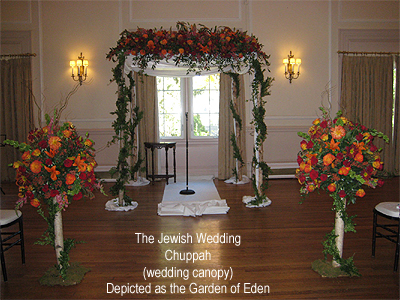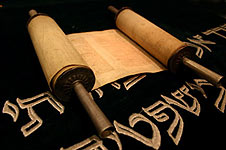Become an Ordained Rabbi Woman Rabbi Ordination
rab-bi – a person trained in Jewish law, ritual, and tradition and ordained for leadership of a Jewish congregation, and today a “congregation without walls” – is either on the internet or not having a pulpit to serve spiritual needs for all. A rabbi serves the community as an educator, social worker, preacher, and officiates life cycle events. (see below) The word rabbi originates from the Hebrew meaning “teacher.”
BECOME ORDAINED – RABBI APPLICATION
Interesting Side Note: the word doctor comes from the Greek word meaning “teacher.” Our Seminary offers religious Doctorate Degrees, including a Ph.D. in Jewish Studies, and your Rabbi Ordination $150 tuition is completely waived when you apply. Although we have been ordaining woman Rabbis for years, a few Orthodox Jewish congregations finally in 2015 began hiring some female clergy. Now, in 2025 there are more. A woman Rabbi is not allowed to be called Rabbi in an Orthodox congregation, but are called Morateinu meaning “my Teacher”. There’s that teacher word again. We have had one person request ordination as Morateinu, but most women who come to us, want to be ordained as a Rabbi. We are happy to do so, since there is a great shortage of women rabbis and even female clergy in general.

Way Back When…
At Mount Sinai, where the Commandments were given, as stated in the Torah, the priesthood was established. Aaron was the first High Priest (also known as the Kohanim) and only his descendants from that point on were to be priests. This priesthood lineage continued until after the destruction of the Second Temple, also known as Herod’s Temple, in 70 CE. With the destruction of the temple, sacrifices could no longer be made so there was a shift in the duties of the priesthood. After a revolt, Jews were exiled from Jerusalem in 135 CE. The priesthood basically ended as such at this time and the rabbinate effectively began.
Because it became difficult to keep leadership in synagogues confined to the line of Levi, as in the Torah, it is not required to be a Levite to be a rabbi. Traditionally, a rabbi was a male observant Jew who kept the Commandments, knew Jewish law and could resolve doctrinal disputes. Now it is also not confined to men, either. Women are being ordained as rabbis, too. Reform Judaism ordained the first woman rabbi in 1972, followed by Reconstructionists in 1977. Conservative Judaism ordained their first woman rabbi in 1983. Though some Orthodox groups have ordained a few women, they do not officially accept women rabbis at this time.
Back When…
There used to be a time when the pulpit rabbinate was the symbol of the rabbinate. There was an assumption that a rabbi was second-best if a rabbi didn’t have a congregation.
Though, most congregations are led by rabbis, it is not required. Anyone can lead a congregation or be a prayer leader. But having a rabbi to lead a congregation does help to strengthen the community. A rabbi can give focus to Jews in a community whether they belong to the congregation or not. Teach and give sermons from the portions of the Torah.
Just as a congregation doesn’t have to have a rabbi, a rabbi doesn’t need a congregation to be a good rabbi. Some of the most effective rabbis today do not have congregations. You could say that the world is their congregation and the Torah can travel. Not having a congregation enables them to go where ever they are needed and when they are needed without having as many arrangements to make.
Esoteric Theological Seminary Ordains Rabbis
Have you felt the calling? Did you discover later on that the rabbinate is for you? Has Jewish Studies been part of you for most of your life, but you just enjoyed studying?
Now you can take your experience, your knowledge and when you meet the requirements of ETS, you too can become an Ordained Reform Rabbi. You prefer to be called an Ordained Interfaith Rabbi – that is okay too. An Ordained Rabbi can serve one or the other; only the Jewish people; the interfaith couples, or both.

Weddings
Did you know you can officiate a Jewish wedding without being Ordained? That is correct and a true statement, but, you cannot legally sign the marriage license as per the marriage laws of each state. Each state has strict laws in place for all clergy, Rabbi or not. A couple will not be legally married by you unless you are Ordained.
If all you want is to officiate weddings, legally marry those couples, then you need to be Ordained. You will need to have legal credentials in order to officiate a wedding ceremony. It is a wonderful feeling to meet with couples in the planning of their Jewish wedding or Jewish interfaith wedding. Being able to share your knowledge of the symbolism and historical import of our ancient time-honored marriage ritual is important because couples today are not just showing up under the Chuppah without understanding the beautiful rituals and customs. There are no words to describe the feeling when you are honored to bless those couples under the Chuppah (wedding canopy), pronounce them legally wed and wish them Mazel Tov as husband and wife.
Life Cycle Ceremonies
There are no words to describe when preparing a student to become a Bar Mitzvah, Bat Mitzvah. There are no words to describe the feeling when you are blessing a baby in the arms of his/her parents and give him/her a Hebrew name.
Providing comfort for all those bereaved when officiated a funeral or an Unveiling can also have the same effect of feeling G-d with you and providing such services.
The Seminary is here to assist you in fulfilling your calling to be a Rabbi. The amount of time you put into it is up to you. Our Seminary has ordained over two dozen rabbis since our founding in 1987. When asked, “where were you Ordained?” you may answer with confidence, Esoteric Interfaith Theological Seminary.
Interfaith Minister, Chaplain, Rabbi – we are all clergy, we have one goal in mind – to assist those with their spiritual needs.

The Seminary is in the process of adding more services to assist our Rabbis entering the field, such as a Rabbi bulletin board, ceremony ideas, lessons, etc.
